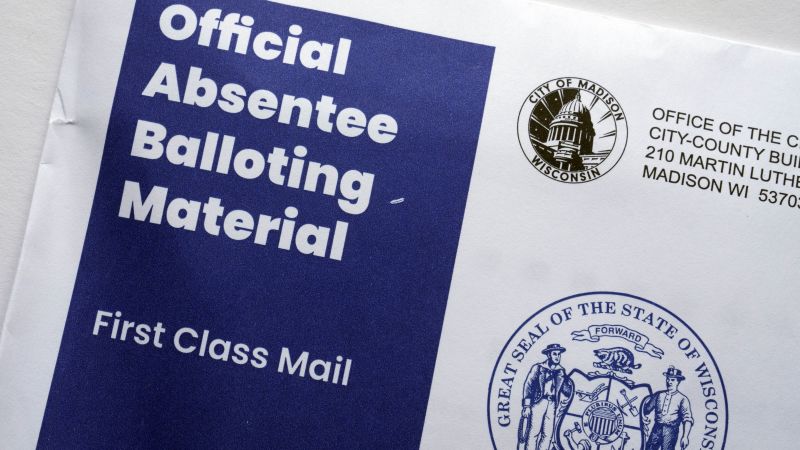A text message last week to young voters in Wisconsin is stirring new concerns in the battleground state about a messaging campaign that could intimidate college students from casting ballots this election, according to a letter from voter protection groups released Tuesday.
The unsolicited text, sent from at least one 262- number to cell phones of people in their early 20s on University of Wisconsin campuses and elsewhere, says: “WARNING: Violating WI Statutes 12.13 & 6.18 may result in fines up to $10,000 or 3.5 years in prison. Don’t vote in a state where you’re not eligible.”
The two state codes that the text message cites refer to laws that govern former Wisconsin residents who vote absentee and the consequences of committing election fraud in the state.
But it’s the text message’s warning and wording of “don’t vote” that are causing much of the alarm among the voter protection groups who call the message “threatening” and warn the message could “frighten eligible young voters into not voting.”
“It’s trying to convince students living in Wisconsin they don’t have a right to vote there,” Courtney Hostetler, the legal director of the non-profit group Free Speech for People, said on Tuesday.
Hostetler’s group and the League of Women Voters of Wisconsin alerted investigators and the public of the text message and their concerns about it on Tuesday, in a letter to Attorney General Merrick Garland and Wisconsin Attorney General Josh Kaul that the groups released publicly online. The letter urges Garland and Kaul to investigate.
The League said it had learned about the text message from some of its own staff members who are in their 20s and from a community outreach center at the University of Wisconsin-Madison.
Mark Pitsch, the university system’s spokesman, said the Universities of Wisconsin “have no indication how many students may have received such texts, which also may have been received by members of the general public.” Pitsch added that his office hadn’t received specific reports about the text message as of Tuesday.
Hostetler said her group fears voter intimidation campaigns could be effective if they go undetected.
“If it’s successful, people won’t report it. They’ll just believe it,” she said. “It’s scary, and it makes people really think [that] the safest thing may be for me to not vote.”
College students may be susceptible to the text messages, Hostetler added, given that students may not know where they are eligible to vote and if they can vote while living on their college campus away from home.
In Wisconsin, students who have lived in one voting area for 28 consecutive days and plan to continue staying there can vote in those places, according to the state’s election commission. Even if a college student returns to his or her parent’s house on weekends temporarily, they can still vote where they primarily live, such as on a college campus, the Wisconsin Election Commission’s guide for students says.
“Once a student has established residency at a campus address, the student may vote using the student’s campus address until the student establishes a new voting residence,” the WEC guide says. “This is the case even if the student is temporarily away from campus and does not know their campus address for the following school year.”
Free Speech for the People and the League’s letter on Tuesday specifically asks for law enforcement authorities to identify who sent the text and investigate it further.
The organizations said they haven’t heard back yet from the authorities they wrote to seeking help, and the Wisconsin attorney general’s office didn’t immediately respond to an inquiry from CNN.
“We want a larger investigative engine than any of our little nonprofits to figure out who is behind this text message,” Debra Cronmiller, president of the League of Women Voters of Wisconsin, told CNN on Tuesday.
She said the text message is the type of intimidation tactic her organization had envisioned could happen this election cycle — though significant situations of widespread voter intimidation in the past have been spread more often via robocall or AI-generated voice recordings.
Read the full article here




